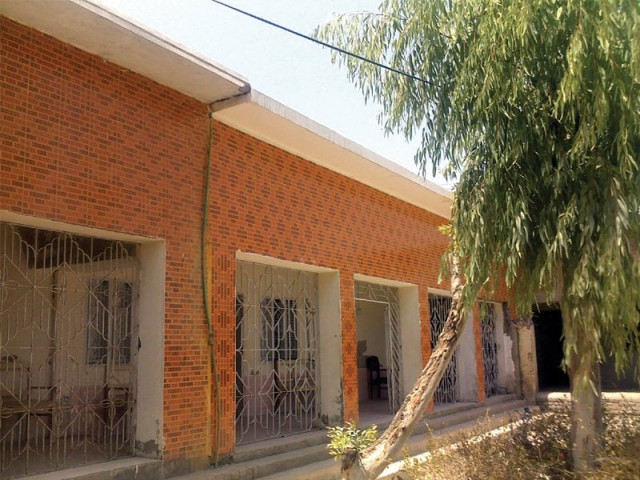Hospital in Dadu can help battle TB with some freebies
It has even attracted volunteers from abroad to train people and villagers.

The TB hospital in Dadu was opened in 1986 by the Tuberculosis Association. It has become a major source of free treatment for poor patients residing in remote areas. PHOTO COURTESY: TUBERCULOSIS HOSPITAL
In the couple of months that followed, the woman’s health deteriorated while the family watched in horror, unable to do anything. Then, they learnt about the Tuberculosis Hospital - or TB hospital as it is more popularly known - in Dadu city which offered not only free check-ups but a cocktail of medicines to help battle the life-threatening disease. “I feel so much better now. I owe my life to the hospital. I probably wouldn’t be standing here today if it weren’t for the free treatment,” said Khatoon.
The hospital was established in 1986 with the help of the district’s enthusiastic social and political workers. Since then it has treated thousands of patients, spreading awareness about the disease, reducing financial burdens and bringing help right to marginalised families’ doorsteps.
The hospital, which has 16 rooms - including a laboratory and a family planning room - is located near the police headquarters on Dadu city’s main road. It has become a major source of free treatment for people residing in remote areas, including Johi, Khairpur Nathan Shah, Maher, who wouldn’t otherwise be able to avail treatment for the disease. The hospital’s data shows that it treated over 13,000 patients, including 465 tuberculosis patients, in 2012.

Most parts of the district were inundated in floods 2010, pressing poor families to relocate and eventually get infected by the disease. Because of this, the hospital’s management, in collaboration with the International Development and Relief Foundation (IDRF), now arranges camps in 16 different villages every month, most of which were affected by the floods.
Attracting more help
The plight of people living in Dadu has even compelled people to fly in from abroad and lend the hospital a much needed hand. After watching gruesome images of marooned people wading through waist-deep stagnant water, Dr Naeema Degani, a Canada-based doctor decided to head over to the district and spend 15 days not only treating patients, but counseling them about the basic health issues as well. Over the course of her stay, she not only accomplished this task but also spent time training residents of flood-affected village, the TB hospital’s staff, population officials and the IDRF teams on how to respond to a disaster so that more lives can be saved.
“This experience is really interesting,” she told The Express Tribune. “People of Dadu seem willing to learn. They are keen to learn from a woman even though they live in a patriarchal society. I taught them first aid and the importance of family planning.” She expressed her dissatification at the way private physicians in Dadu work, saying that they simply choose to look the other way when people who can’t afford treatment come knocking at their door. She said that even the Lady Health Workers need more training so that they have the skills to handle emergencies in the absence of doctors.

Abdul Haque Brohi, TB Association’s chairperson, was all praise for Dr Degani and other volunteers like her. “She also taught women in rural areas about basic self-examination procedures, including checks for breast cancer.” He added that even though Dr Degani is 68 years old, she had managed to arrive at 7am sharp each day and then worked continuously for 10 hours. “She spent more time counseling than treating people as she feels that women in rural areas have poor health but they lack awareness about diseases and how they can be treated.”
Brohi said that Dr Degani’s husband, Dr Cassim Degani, also visited flood-affected areas after the natural calamity hit back in 2010. “People like Dr Degani are our hope for better health facilities. They interact with ordinary citizens, including poor people, and encourage them to seek a better life for themselves.”
Dr Degani said that harsh environments do not intimidate her from volunteering and she values these experiences very much.
Published in The Express Tribune, March 5th, 2013.



















COMMENTS
Comments are moderated and generally will be posted if they are on-topic and not abusive.
For more information, please see our Comments FAQ